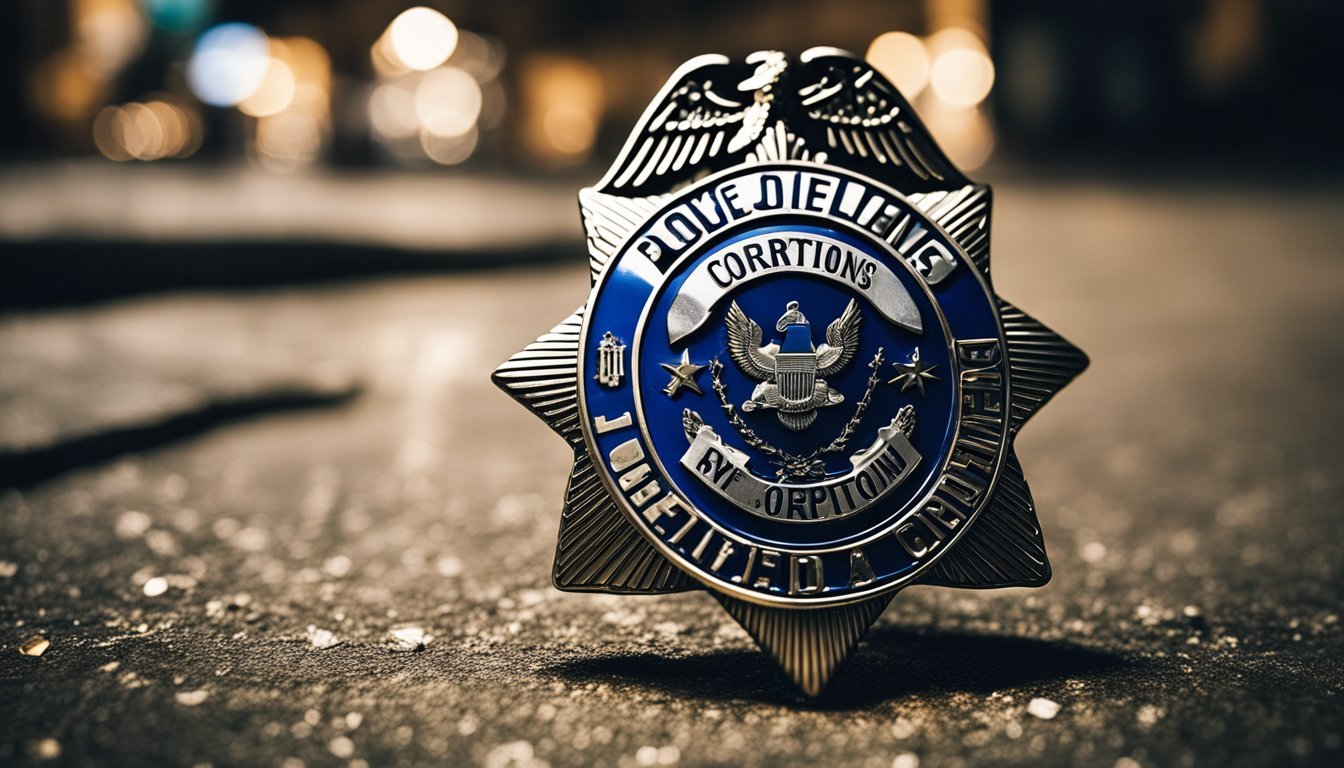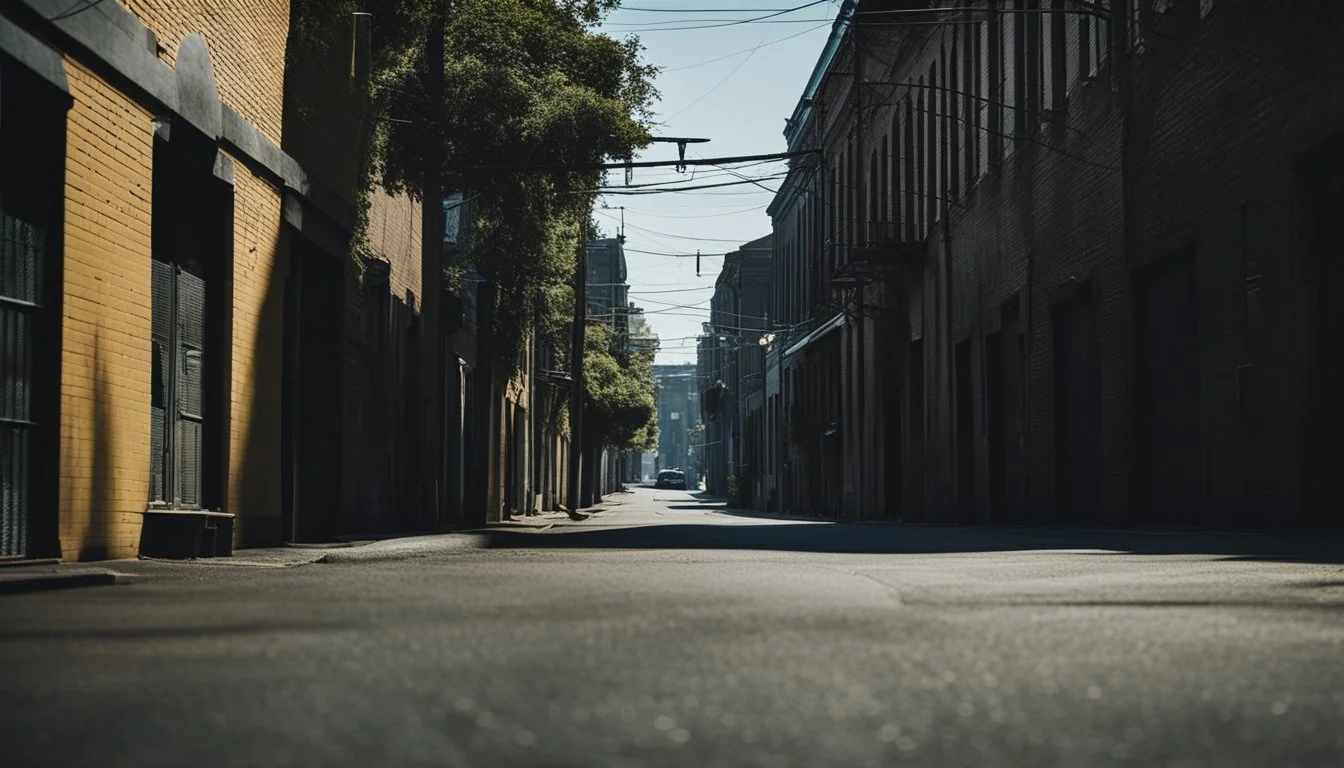7 True Crime Documentaries About Police Corruption in New Orleans
Unveiling Shocking Scandals
The city of New Orleans has long been a focal point for discussions about police corruption, with its history marked by numerous scandals and allegations of misconduct. Documentaries on this topic provide a unique lens to understand the complexities and systemic issues within the New Orleans Police Department.
These documentaries delve into both historical and contemporary incidents, highlighting the darker aspects of law enforcement while also portraying attempts at reform. Such films offer viewers deep insights into how corruption can deeply affect a community and the ongoing efforts to rebuild trust between the police and the public.
1) The Big Easy Corruption
"The Big Easy Corruption" (2009) dives deep into the heart of New Orleans' police department, revealing cases of deep-seated corruption and systemic misconduct.
The film scrutinizes the culture within the force, exposing how certain officers manipulated their power for personal gain.
Through a series of interviews and archival footage, viewers witness firsthand accounts from victims and insiders.
Aired in 2009, the documentary covers various instances of bribery, drug trafficking, and abuse of authority. Real-life stories are highlighted, showcasing the detrimental impact these corrupt practices had on the community.
Additionally, legal experts and former officers provide insights into the systemic issues.
The documentary is not just about the wrongdoings of individual officers but also addresses the broader implications of corruption in law enforcement.
It emphasizes the loss of trust between the public and those who are sworn to protect them.
For those interested in learning more about "The Big Easy Corruption," visit its IMDb page.
2) Cops or Crooks?
This documentary scrutinizes the illicit actions of certain police officers within the New Orleans Police Department. It sheds light on how some who swore to protect the community became the very threat they were supposed to combat.
Through revealing interviews and hidden footage, viewers gain insight into the complex world of corruption and misconduct that plagued the department.
Corruption in the police force is something that shakes the foundation of public trust. "Cops or Crooks?" illustrates this breakdown, focusing on specific cases in New Orleans where officers crossed the line between law enforcement and criminal activities.
The film details instances of bribery, theft, and even involvement in violent crimes, exposing an underbelly that many in the community feared but few knew the extent of.
For more details, please refer to IMDb.
3) New Orleans Confidential
"New Orleans Confidential" (2019) meticulously examines the depth of corruption within the New Orleans Police Department.
The documentary delves into notorious cases and the internal workings that facilitated widespread misconduct.
Featuring interviews with former officers, journalists, and victims, it highlights key incidents that have shaped the department's troubled history.
It offers a comprehensive account of systemic issues and efforts to reform the force.
4) Betrayal in the Bayou
"Betrayal in the Bayou" (2024) delves into the disturbing story of Chad Scott, a DEA Special Agent who operated just north of New Orleans. For nearly two decades, Scott controlled a network of informants, often manipulating those he arrested to work for him.
Scott's aggressive tactics earned him numerous accolades within the DEA, but also fostered a reputation for bending the rules. This documentary highlights how his unchecked power led to extensive corruption and abuse within the system.
The film also examines the role of Ron Woods, a Black DEA supervisor, who saw the mounting issues but was unable to intervene before Scott's actions spun out of control. His journey underscores the complexities of internal agency politics and the challenges of whistleblowing.
Through interviews and archival footage, "Betrayal in the Bayou" paints a vivid picture of systemic corruption and the impacts on the community. It's an essential watch for those interested in the darker side of law enforcement.
More about "Betrayal in the Bayou" (2024)
5) Justice Under Siege
"Justice Under Siege" explores the intricate web of corruption inside the New Orleans Police Department. This gripping documentary lays bare the systemic issues and ethical breaches that have plagued the force.
The film begins with historical contexts, looking at misconduct dating back to the 1990s. Viewers are introduced to high-profile cases where police officers were implicated in serious crimes, including drug trafficking and murder.
Through interviews with insiders and victims' families, the documentary paints a comprehensive picture of the challenges faced by those seeking justice. It highlights several key incidents, such as the Henry Glover Killing and its subsequent cover-up, showcasing the lengths to which some officers went to protect their own.
Detailed reenactments and real footage give a face to the victims and a spotlight on the whistleblowers courageously coming forward. Personal stories bring an emotional depth, making the issue more relatable and urgent.
For anyone interested in understanding how deeply corruption can infiltrate law enforcement agencies, "Justice Under Siege" serves as an essential watch. It sheds light on the critical need for reform and accountability within the New Orleans Police Department.
6) NOLA's Dirty Blue Line
NOLA's Dirty Blue Line (2015) dives deep into the long history of corruption within the New Orleans Police Department. This documentary examines several key incidents that have marred the department's reputation over the years.
It investigates notorious cases of police misconduct and abuse of power, shedding light on the systemic issues that plagued the force for decades.
The film doesn't shy away from detailing how criminal activities often went unchecked within the ranks. It features unsettling interviews with former officers and victims, providing firsthand accounts of these transgressions.
Viewers gain insights into how the department attempted to reform and the challenges faced in achieving true accountability. The documentary's unflinching portrayal offers a stark reminder of the critical need for continued vigilance and reform in law enforcement.
For more information, viewers can visit NOLA's Dirty Blue Line (IMDB).
7) The Scandal in Crescent City
"The Henry Glover Killing & the New Orleans Police Department's Efforts" (2016) is a documentary that examines the misconduct within the New Orleans Police Department following Hurricane Katrina.
In December 2016, New Orleans reached a $13.3 million settlement with the victims' families involved in several police violence incidents around the hurricane's time.
This documentary focuses on the killing of Henry Glover, an unarmed Black man shot by a police officer. His body was later found burned in a car near a police station.
This tragic event highlights severe issues within the department, including excessive use of force and attempts to cover up wrongdoing.
Glover's case became a symbol of the broader problems in the New Orleans Police Department, demanding accountability and justice. The documentary sheds light on the serious repercussions of unchecked police power in a crisis situation.
For more information, visit Wikipedia.
Historical Context of Police Corruption in New Orleans
Police corruption in New Orleans has been an ongoing issue, with significant events shaping its history and impacting the community deeply. Key incidents have brought attention to the pervasive issues within the New Orleans Police Department (NOPD), influencing public perception and trust.
Significant Events Leading to Increased Scrutiny
In the mid-1990s, the NOPD faced intense scrutiny due to its high levels of corruption and brutality. One notable event was the arrest of officer Len Davis in 1994. He was convicted for orchestrating a murder, highlighting the depths of corruption within the force. This case was a catalyst for national outrage and reform demands.
Following Hurricane Katrina in 2005, multiple cases of police misconduct and violence came to light. The killing of Henry Glover and subsequent cover-up by NOPD officers further eroded public trust. These incidents shed light on systemic issues within the department, prompting federal investigations and reform efforts.
Recent undercover sting operations conducted by outlets like Forbes have unveiled ongoing corruption. These investigations have led to the suspension of several officers, keeping the department under continuous scrutiny and reform pressure.
Impacts on the Community
The pervasive corruption within the NOPD has had severe repercussions for the community. Trust in law enforcement was significantly undermined, particularly in poorer, predominantly African American neighborhoods. Incidents of police brutality and corruption created a climate of fear and distrust.
Economic impacts included costly legal settlements, such as the $13.3 million settlement in 2016 related to police violence victims from the Hurricane Katrina era. These financial burdens affected the city's budget and resources, diverting funds from essential services.
Socially, the corruption drove a wedge between the police and the community, hindering effective policing and collaboration. Efforts to rebuild this trust have been ongoing, but the legacy of corruption continues to influence community-police relations in New Orleans.
Analyzing True Crime Documentaries
True crime documentaries about police corruption utilize various storytelling techniques to present real-life events and often share common themes and narratives that provide insight into the complex nature of these crimes.
Techniques for Presenting Real-Life Events
True crime documentaries employ several strategies to present real-life events accurately and engagingly.
One of the primary methods is interviews with those directly involved or affected. This includes not only victims and their families but also law enforcement officials, journalists, and in some cases, the accused themselves.
Archival footage is another crucial element. This footage can include news reports, police records, surveillance videos, and personal photos or videos that provide a visual context to the story.
Reenactments are sometimes used to dramatize events that were not captured on camera. These help fill in gaps and offer a visual representation of testimonies and accounts.
Narration plays a pivotal role as well, guiding viewers through the complex web of events and ensuring the story remains cohesive and understandable.
Common Themes and Narratives
Documentaries about police corruption often explore themes such as systemic racism, detailing how biases within the system contribute to unjust treatment of minorities.
Abuse of power is another recurring theme. These documentaries explore how some officers exploit their authority for personal gain or to intimidate others.
Another common narrative is the struggle for justice. Many of these documentaries highlight the efforts of individuals or communities to hold corrupt officers accountable and seek reforms within the police department.
Public mistrust is frequently addressed, examining how repeated incidents of corruption erode the community's trust in law enforcement.
These themes collectively paint a comprehensive picture of the challenges and complexities involved in addressing police corruption. They inform and engage viewers, prompting critical reflection on the issues within law enforcement.
Legal and Ethical Implications
Addressing the complex relationship between law enforcement and the communities they serve often raises significant legal and ethical concerns. These implications can shape public perception and have broad consequences.
Accountability and Justice
Documentaries focusing on police corruption in New Orleans highlight significant issues in accountability and justice. They uncover systemic challenges in prosecuting corrupt officers. Legal frameworks sometimes fall short, necessitating reforms to ensure corrupt actions are addressed appropriately.
Public trust hinges on the integrity of legal proceedings. High-profile cases may prompt calls for independent oversight bodies. Transparency in the legal process is essential, as it reassures communities that justice is being fairly administered.
In especially egregious cases, federal intervention may be required. Such interventions can lead to broader reforms, aimed at improving the entire system rather than addressing isolated incidents.
Ethical Considerations in Documentary Filmmaking
Creating documentaries about police corruption involves navigating various ethical dilemmas. Filmmakers must balance the need for truthful storytelling with the ethical responsibility to avoid sensationalism.
Informed consent from participants is crucial. Additionally, they must ensure that vulnerable individuals, such as whistleblowers or victims, are not exposed to harm. Ethical storytelling involves presenting a balanced view, giving law enforcement a voice as well.
Moreover, filmmakers need to avoid re-traumatizing victims by being sensitive to their experiences. Ethically made documentaries can educate and inform while respecting the dignity and safety of all involved. This approach maintains the documentary’s credibility and its impact on public discourse.





